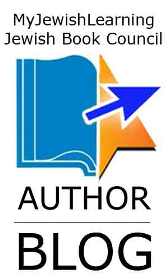Join a community of readers who are committed to Jewish stories
Sign up for JBC’s Nu Reads, a curated selection of Jewish books delivered straight to your door!
In his last post, Rabbi Elie Kaunfer wrote about new models for engaged Jewish life. He’ll be blogging all week for Jewish Book Council and MyJewishLearning’s Visiting Scribe.
 A few years ago, my friend and colleague, Rabbi Ethan Tucker, wrote an article about independent minyanim in which he asked, almost as an aside, “We all cook and bake. Why shouldn’t every community be baking its own matzot?”
A few years ago, my friend and colleague, Rabbi Ethan Tucker, wrote an article about independent minyanim in which he asked, almost as an aside, “We all cook and bake. Why shouldn’t every community be baking its own matzot?”
I admit at the time I thought this was a relatively marginal goal in the general trend toward Jewish empowerment. After all, we need people who can pass on the core Jewish principles of study, worship and acts of lovingkindness, not a competitor to the ably skilled people at Streit’s.
But Ethan’s challenge was an interesting one. He put it a different way in a lecture series he recently gave on Halakhah (Jewish law). Does your own Jewish community have the skills, knowledge and confidence to truly own the Jewish tradition? Or, to put it another way, if we all eat matzah on Passover, why is it that none of us know how to make it?
And here I thought I was an empowered Jew. After all, I just wrote a book called Empowered Judaism. But I have no clue how to make matzah, one of the oldest commandments of Jewish living. And until this year (see below), I didn’t even know anyone who could do it (and believe me, I have a lot of Jewish friends on Facebook).
What’s worse: we free ride on other communities that don’t really buy into our approach to Jewish life in order to get matzah on Passover. Isn’t it odd that the people I buy matzah from would never be a 10th person in the minyan I daven in on Shabbat? We live in parallel Jewish communities, but only one group is totally dependent on the other to celebrate Passover (and make tefillin, and ritually slaughter animals, and write sifrei Torah, with a few exceptions to the latter two.)
To be clear, this is not a “liberal” vs. “Orthodox” issue. Very few Modern Orthodox communities (excluding those on religious kibbutzim in Israel) bake their own matzot. What kind of message does it send when we take school-kids on a tour of the matzah factory, and they only see ultra-Orthodox Jews in charge?
Now this doesn’t mean we all need to go out and bake our own matzot for Passover. But it does mean that someone we know, someone in our Jewish community, broadly speaking, should be baking matzah.
This all came home for me last week, when a number of fellows at Yeshivat Hadar – men and women – baked their own matzah under the supervision of Rabbi Tucker. The event was so unusual that it merited coverage in the New York Times. “This is the essence of Pesach,” one of our students, Rachel Druck, was quoted as saying.
This underscored for me the ways in which we have a long way to go to seriously live out an empowered Jewish life. It’s not enough to build engaged communities of prayer, learning and lovingkindness. It also means setting our sights on the possibility of being fully Jewishly self-sufficient. Even to the point of baking our own matzah.
If all the matzah factories closed next year, and you were forced to go it on your own for Passover, what would you do? I, for one, am going to take some time this year to learn how to bake matzah.
Rabbi Elie Kaunfer, the author of Empowered Judaism: What Independent Minyanim Can Teach Us about Building Vibrant Jewish Communities, is blogging all week for the Jewish Book Council and MyJewishLearning.